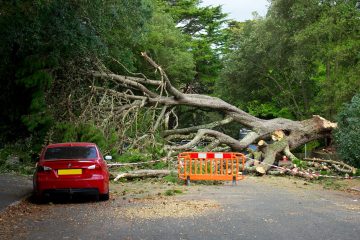What to Look for in an Insurance Policy
Insurance is incredibly important, but it can be very confusing. With that in mind, here are some things you need to pay attention to and be on the lookout for when it comes to your insurance policy.
Terms to know
Actual cash value – How much something actually costs. This takes into account depreciation (the decline in value of an item).
Carrier – The insurance company. If you’re working with an independent agent, they work with a variety of insurance companies. Check out ours here.
Claim – If you were injured in an accident or some of your property was damaged, you’d file a claim with the insurance company to get reimbursement for the medical bills or the value of the property that was damaged.
Coverage – The total and type of insurance carried. The coverage explains what’s protected, how it’s protected, and what’s excluded.
Deductible – The amount you are required to pay before your insurance kicks in.
Endorsement – A modification to your policy. Can add or remove coverage, or change the conditions in which coverage applies.
Exclusion – Something that’s not covered by your insurance policy. For example, coverage for flood damage is generally excluded under most home and auto insurance policies.
Hazard – An event or circumstance that makes it more likely you’ll need to use your insurance. Ice on a roadway is a hazard. So is a lit candle in your home.
Insured – The person protected by the insurance policy.
Insurer – A company authorized to issue insurance. The insurance company.
Limit – The maximum amount the insurance company will pay the policyholder for a particular area of coverage.
Loss – When an insured item or person is stolen, damaged, or died as a result of a peril, and you need reimbursement for said item.
Peril – An event that causes a loss. A few examples of perils would be fire, theft, vandalism, etc.
Policy – A contract between you and the insurance company. It explains what’s covered, how it’s covered, to what amount it’s covered, and what’s excluded.
Policyholder – The person that bought and owns the insurance policy.
Property – The things that you own. Your home, car, TV, and couch are all considered property.
Reinsurance – Insurance for insurance companies. If an insurance company has a significant number of claims and needs help in making payment on those claims, the reinsurance company steps in.
Replacement cost – The amount it’ll take to replace the insured item in the event of a loss.
Rider – An add-on or a modification of coverage.
Schedule – A detailed list of items to be covered under an insurance policy. This can apply to several areas but is most commonly used for jewelry.
Secondary insurer – This insurance will provide coverage that your main insurance company does not have. For example, we mentioned flood damage as a general exclusion, but you can get a flood insurance policy. That policy is considered your secondary insurer.
Term – The period of time you’re protected under your insurance policy. Typically the term is 6 months or 12 months.
For a more in-depth list of insurance terms and what they mean, click here.
When shopping for insurance
Know the coverages – i.e. what is covered and what isn’t. More than that, how those things are covered.
Get an idea of how insurance coverages are rated – For instance, your homeowner’s insurance rate can be higher if there’s a great distance from your home to a fire hydrant/fire station. Also, your driving record is a big factor with regard to your auto insurance rates.
Shop for the best value – You’re looking for the best coverage for the best price. Not necessarily looking for the cheapest because cheap insurance could leave you underinsured, and that’s not somewhere you want to be.
Check company ratings – A company with a higher rating has a better chance of paying claims, and staying solvent. Inversely, a company with a lower rating has a greater chance of going out of business and that could leave you vulnerable.
Homeowner’s insurance
- What’s covered?
- Damage to the interior and exterior of a house
- Loss or damage to personal belongings
- Personal liability for damage or injuries caused by you and your family
Types
- HO-2
- HO-3
- HO-4
- HO-5
- HO-6
Auto insurance
- What’s covered
- Vehicle
- Passengers
- Other drivers
- Other driver’s vehicles
- Physical property
Types
- Collision
- Comprehensive
- Liability
- Underinsured
- Uninsured
- Added coverages
Business insurance
- Types
- Workers compensation
- Commercial auto
- Business owners
- General liability
- Professional liability
- Commercial umbrella
- Inland marine
Over the next couple of months, we’ll be covering each of these topics in great detail, so stay tuned!
And, if you’d like to learn more about anything listed here, send us an email!


